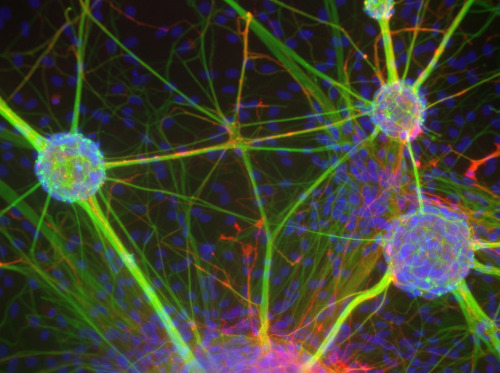Тема тромбоцитов сейчас меня особо интересует, поэтому советую почитать статейку на http://www.eurekalert.org/pub_releases/2009-03/cnmc-cnr031009.php
Contact: Jennifer Leischerjleische@cnmc.org202-476-4500Children's National Medical Center
Children's National research links platelets to sepsis-related organ failure
Conventionally thought to be the bloodstream's 'innocent bystanders,' platelets may actually play a more sinister role in organ failure caused by severe sepsis
WASHINGTON, DC—Scientists at Children's National Medical Center have identified a previously unknown contributor to organ failure in patients suffering from sepsis: platelets.
The finding, published in the American Journal of Respiratory and Critical Care Medicine, is the first time doctors have looked at and linked platelets to poor outcomes from this often fatal infection.
"Despite many medical advances over the last few decades, mortality rates for sepsis have not really improved," said Robert Freishtat, MD, MPH, of the Center for Genetic Medicine Research at Children's National Medical Center, who led the study. "But now that we know that platelets, which we previously believed to be merely 'innocent bystanders,' can actually contribute to the development of fatal complications from sepsis, we can use this knowledge to better gauge someone's risk of dying and to design new interventions."
Sepsis is the tenth leading cause of death in the United States. More than 40 percent of sepsis cases are fatal, and in most, the resulting organ failure, not the underlying infection, is the primary cause of death. Through gene and protein analyses in both septic mice and humans, scientists found that cases of severe sepsis featured a unique attribute: the genes within platelets were triggered to produce a protein known as granzyme B, which has been shown in previous studies to contribute to cell death as part of the body's immune response to cancer and viruses. During sepsis, platelets collect within major organs including the spleen, an important infection-fighting organ. As they collect and come into contact with the organ's cells, the granzyme B, if present, will cause the organ's cells to die. Previous research has shown that that this factor may be a major contributor to organ failure. Granzyme B was only detected in humans and mice with the most severe sepsis.
"Detection of granzyme B in platelets could be a huge step forward in battling sepsis," said Dr. Freishtat. "First, as a prognostic indicator, the protein's presence could show more aggressive treatments are needed right off the bat. Eventually, perhaps this knowledge will help us find a way to prevent organ failure by targeting interventions directly at the platelets and granzyme B production."
###
The study was funded by the National Institutes of Health and Children's National Medical Center.
The full manuscript, "Sepsis Alters the Megakaryocyte-Platelet Transcriptional Axis Resulting in Granzyme B-mediated Lymphotoxicity" is available on the journal's website.
About Children's National Medical Center
Children's National Medical Center, located in Washington, DC, is a proven leader in the development of innovative new treatments for childhood illness and injury. Children's has been serving the nation's children for more than 135 years. Children's National is proudly ranked among the best pediatric hospitals in America by US News & World Report and the Leapfrog Group. For more information, visit www.childrensnational.org. Children's Research Institute, the academic arm of Children's National Medical Center, encompasses the translational, clinical, and community research efforts of the institution. Learn more about our research programs at www.childrensnational.org/research.
17.03.2009
Тромбоциты и сепсис
Подписаться на:
Комментарии к сообщению (Atom)











0 +:
Dí lo que piensas...